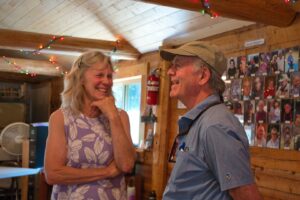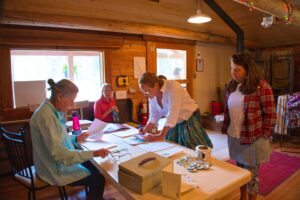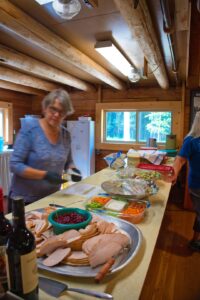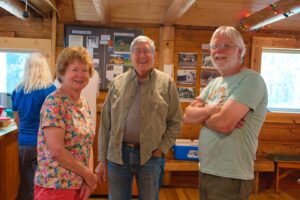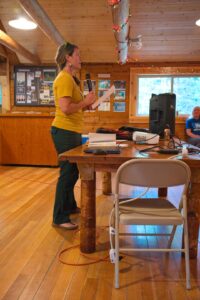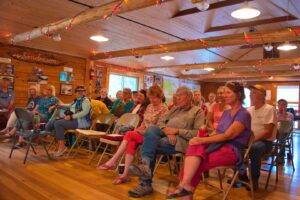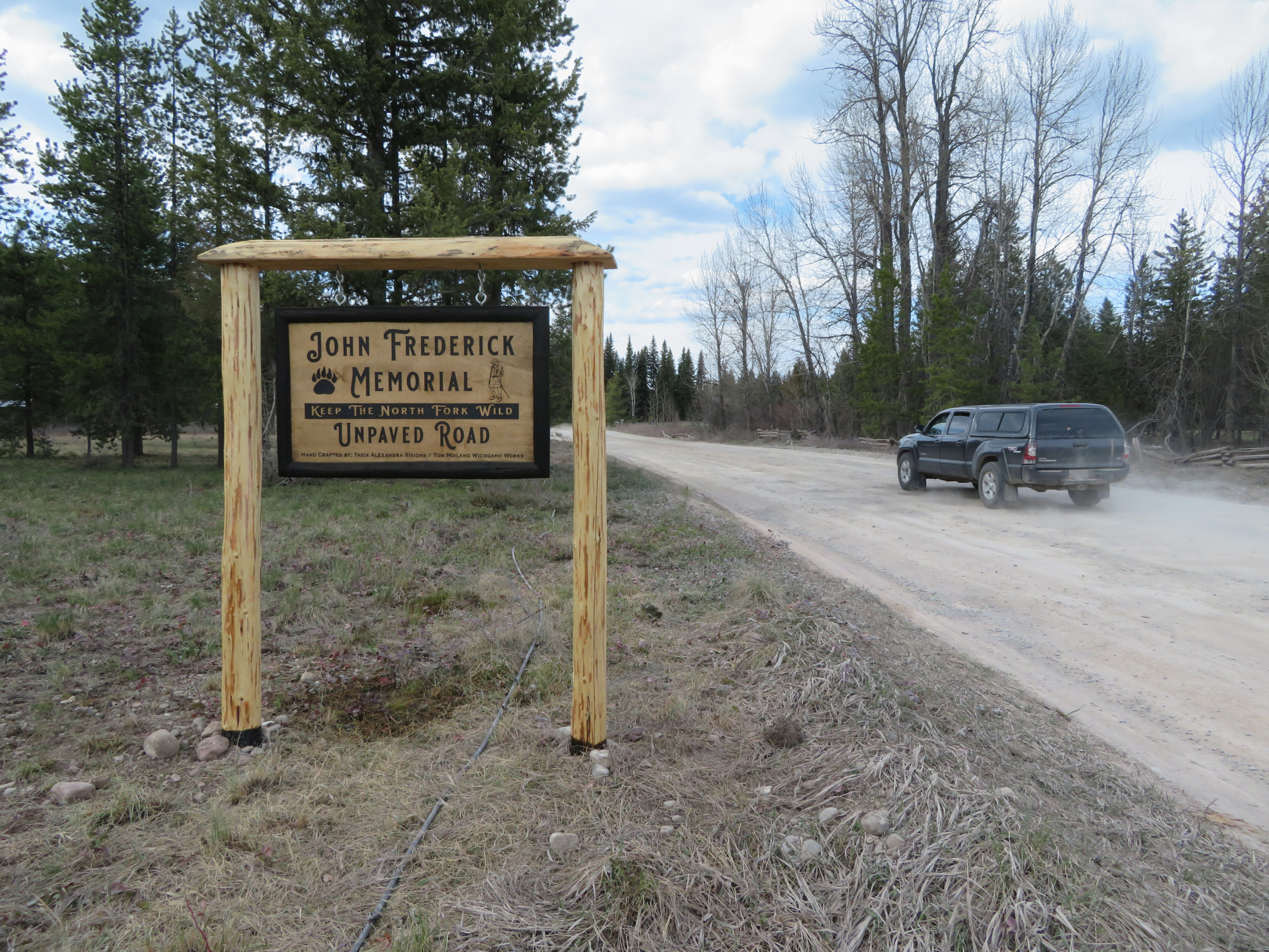
All posts by Bill Walker
Wide variety of old-growth ecosystems across the US makes their conservation a complex challenge
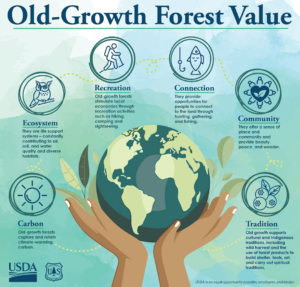 What exactly is “old growth? This article adds some context to the discussion . . .
What exactly is “old growth? This article adds some context to the discussion . . .
In an old-growth longleaf pine savanna, the absurdly long pine needles sing in the wind. Once considered forests, these landscapes in the southeastern U.S. coastal plain are open-canopied and sunny, more grassland than forest, with underbrush kept clear by frequent fires.
Longleaf pines – their needles can be up to 18 inches long – are among the longest-lived trees in eastern North America, surpassing 500 years if they are lucky enough to escape lightning strikes from the region’s frequent thunderstorms. Almost more fascinating is the ground cover, with up to 50 species per square meter, including some plants that are thousands of years old, with the vast majority of their biomass below ground. Picture an underground forest.
In the American West, there are other types of old-growth forest. Dry ponderosa pine woodlands are similarly open in structure and contain trees up to nearly 1,000 years old. But perhaps the most familiar old-growth forests are the complex, wet old-growth forests of the Pacific Northwest, which stretch from northwestern California to southeastern Alaska.
House preliminarily approves ‘River census’ study bill
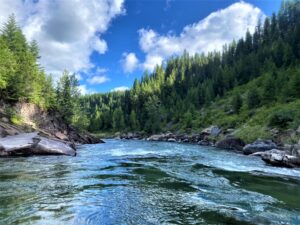
This sounds like a really good idea. Note that the proposed study includes the three forks of the Flathead River, as well as the main stem as far as Flathead Lake . . .
Rep. David Bedey was born and raised in Hamilton, and he used to fish the Bitterroot River, but it’s so busy he doesn’t anymore.
“Now I go to the Clark Fork or somewhere else where I don’t have to play bumper cars with folks,” said Bedey, a Hamilton Republican.
Bedey made the comments Wednesday in the House Appropriations Committee in support of river use data that would be collected through House Bill 762, sponsored by Rep. Joshua Seckinger, D-Bozeman.
The “river census” bill, which preliminarily passed 67-32 in the House one day earlier, would require Montana Fish, Wildlife and Parks to produce a report of all watercraft on 16 river stretches in the summer totaling 966 miles in the state.
Continue reading . . .
B.C. Rockies conservation talks stumble as trust breaks down
Think conservation threats to the trans-boundary Flathead drainage have settled down? Maybe not…
The leader of one of four Ktunaxa First Nations in B.C. says she’s lost confidence in ongoing discussions between the nations and the federal and provincial governments over land management and potential conservation measures in the Elk and Flathead valleys.
Recent discussions have centred on two parcels of land known as the Dominion coal blocks, which together cover 200 square kilometres in the Elk and Flathead valleys in Ktunaxa Nation territory in southeast B.C. The Flathead Valley, in particular, is an area where Gravelle wants to see Indigenous-led conservation.
Howl – The dark side of wolf reintroduction
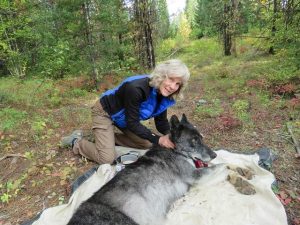
Our own Diane Boyd got some more ink, this time in a long-form article with lots of photos published in ‘Nautilus’…
Diane Boyd walked along the North Fork of the Flathead River. It was a clear blue summer day, and the wolf biologist relished being in this Rocky Mountain valley in northwestern Montana. She set foot here 45 years ago to track the first known gray wolf to wander into the western continental United States from Canada in decades. Humans had exterminated the last of them in the 1930s.
The river wove through pine, aspen, and willow trees that rose along the edge of a sprawling grass meadow. The mountain peaks in the distance were topped with snow. Boyd grew up in suburban Minnesota, where she was the neighborhood kid who could be found at the wild edges of the subdivision putting caterpillars in jars.
“I always wanted to go more and more wild in my life—wildlife, wild places—and it doesn’t get a lot wilder than here,” Boyd said to me last summer, as we walked through the quiet meadow.
At age 69, dressed in jeans, running shoes, and a T-shirt picturing a dog lazing on a lake pier, Boyd seemed very much the innately independent biologist who settled here at age 24. She spoke with a directness that had little room for sentimentality. The meadow area is called Moose City and was originally a 1910s homesteader ranch with six log cabins. Boyd lived alone in one of the tiny cabins without electricity or running water for 12 years.
Photos from 2024 annual meeting
Finally! Pollution in Elk-Kootenai watershed referred to the IJC
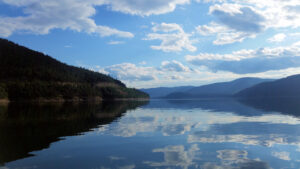
Here’s some good news to start the week. The Elk-Kootenai watershed cross-border water pollution from Teck Resources’ coal mining operations has finally been referred to the International Joint Commission (IJC). The Flathead Beacon has excellent coverage . . .
Federal governments in Canada and the U.S. have agreed to ask the International Joint Commission (IJC) to study and take steps to mitigate the inflow of mining pollution to the Elk-Kootenai River watershed through a joint reference, signaling a breakthrough in bilateral talks that have stalled for years, even as the company that owns the mines expands its footprint along the border with Montana.
The agreement was announced Monday by tribal and First Nation governments in Montana, Idaho and British Columbia (B.C.) who cheered the development after years of intensifying pressure on the U.S. and Canada. The reference means that an independent governance body representing both nations will convene to craft solutions to address the contaminants spilling into a watershed that crosses the international boundary at Lake Koocanusa and spans traditional Aboriginal territory.
The federal governments of both U.S. and Canada also confirmed the reference on Monday and issued a joint statement from the Ambassador of Canada to the United States, Kirsten Hillman, and the Ambassador of the United States to Canada, David L. Cohen. According to Pierre Cuguen, a spokesperson for Global Affairs Canada (GAC), both countries “have reached an Agreement-in-Principle (AIP) on next steps to further bilateral cooperation to reduce and mitigate the impacts of water pollution” in the transboundary watershed.
Extraordinary hope: a conversation with Roger Sullivan
Katy Spence of the Montana Environmental Information Center (MEIC) recently published a wonderful interview with Roger Sullivan, who happens to be a board member of both MEIC and our own NFPA. Roger has also been involved with the NFPA from the very beginning.
This piece was originally published in the MEIC’s quarterly Down to Earth publication and is used here with permission. To see the article in full context and with better formatting, you can download the entire newsletter here.
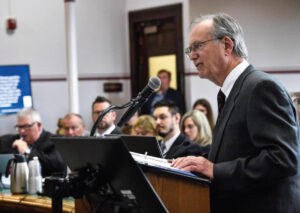
MEIC is fortunate to have a number of friends and allies that we can call upon for support, encouragement, or assistance. This year, we feel especially fortunate to know our board member, mentor, and friend Roger Sullivan. Roger has a deep history in Montana environmental law and justice. For more than 35years, Roger has advocated for Montanans and our constitutional right to a clean and healthful environment. He has successfully represented dozens of Libby residents sickened by exposure to asbestos from the W.R. Grace mining operations. Most recently, Roger was one of the attorneys in the landmark youth climate trial Held v. State of Montana.
Roger has served on MEIC’s board multiple times and has represented MEIC and other public health and environmental groups in innumerable cases. He tirelessly advises and mentors young environmental lawyers in the state, including many of whom have worked with (or still work with) MEIC. Continue reading Extraordinary hope: a conversation with Roger Sullivan
Feds won’t fund North Fork Road paving study
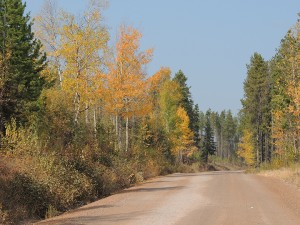
The expected result, but still good to know for certain . . .
Flathead County did not receive federal funding for an environmental analysis to look at paving a portion of the North Fork Road, county public works director Dave Prunty confirmed Monday.
The county sought Federal Lands Access Program monies to do a National Environmental Policy Act review of improving the road from just north of Glacier Rim to the Camas Road entrance to Glacier National Park earlier this year, but the analysis wasn’t funded.
Montana Supreme Court revokes Rosebud Coal Mine Expansion
NFPA board member Roger Sullivan was involved in this case . . .
The Montana Supreme Court has halted an expansion of a Westmoreland-operated mine that supplies the Colstrip power plant with coal. The court’s decision vacated an 8-year-old permit that allowed Westmoreland to pull 12 million tons of coal from the Rosebud Mine located in southeastern Montana.
The environmental concern at issue related to water quality impacts to the East Fork of Armells Creek, an intermittent stream that flows into the Yellowstone River. The Montana Environmental Information Center and the Sierra Club argued that allowing strip-mining operations in AM4, a 49-acre parcel in Area B of the mine, would result in material damage to the waterway by increasing the creek’s salinity to the detriment of one of its established beneficial uses: the support of aquatic life.
The order, authored by Chief Justice Mike McGrath and signed by the court’s six other justices, largely affirmed a lower court’s ruling. It nullifies the AM4 permit, disallowing mining in that area. Prior to arriving at the Montana Supreme Court, DEQ’s decision in 2015 to approve the expansion had been weighed by the Board of Environmental Review (a quasi-judicial, governor-appointed body) and the Sixteenth Judicial District Court.
(A tip of the hat to Debo Powers for spotting this one.)

